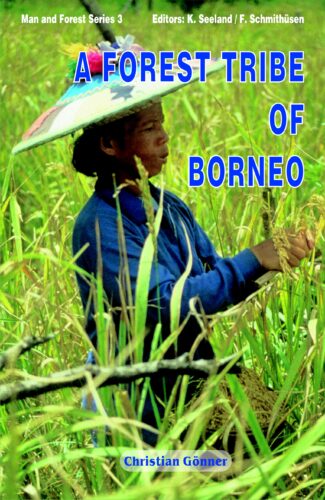

Purana Sahitya mein ...
Purana Sahitya mein Paryavaran Samrakshan
Environmental Protection in Pauranic Literature by: Nanjala RathoreHow important was environment in the ancient times as depicted in the Puranic literatures has been discussed in detail in this book.
₹300.00 Original price was: ₹300.00.₹270.00Current price is: ₹270.00.
ISBN: 9788186921180
Year Of Publication: 2001
Edition: 1st
Pages : xiv, 194
Bibliographic Details : Bibliography
Language : Hindi
Binding : Hardcover
Publisher: Decent Books
Size: 23 cm.
Weight: 450
How important was environment in the ancient times as depicted in the Puranic literatures has been discussed in detail in this book.

- Sale!Human Ecology in the Vedas by: Marta Vannucci
₹1,200.00Original price was: ₹1,200.00.₹1,080.00Current price is: ₹1,080.00.Directing his view towards the whole universe holistically, amazingly, the Rigvedic man as this study shows was awakened to the cosmic Law and Order (Rita); he saw how nothing: nature, environment, or the universe itself, was ever static; and how the orderly Energy was at the root of all changes and movements. Instinctively, he not only bowed down to the Order that reigns supreme, but also tried to attune himself, his behaviour, and his everyday activity to the eternal laws of the universe. Which, says the author, he recognized as his dharma. A sequel to her earlier, well-received title: Ecological Readings in the Veda, Dr. Marta Vannuccis this book sets out fresh, insightful analyses of the Vedic writings to highlight the ancient rishis perceptions of the Universe, Nature, and cause-effect relationships; and how, millennia ago, these sages came to revere, even adore, Nature in its different manifestations and, wittingly or unwittingly, evolve an environmentally friendly culture. In support of her findings, the author also analyses a few selected hymns from the Rigveda, using a biological key to decode these songs. Additionally, she also explores some important aspects of two Vedic gods: Indra and Varuna, who respectively represent the material and immaterial reality. Highly relevant appendices apart, the book includes a comprehensive glossary of Sanskrit/non-English words and numerous bibliographic references.
- Sale!Indigenous Knowledge, Forest Management and Forest Policy in South Asia by: Klaus Seeland, Franz Schmithusen,
₹750.00Original price was: ₹750.00.₹675.00Current price is: ₹675.00.Reflecting the latest findings of a large research project that began about a decade ago this volume, the 5th in the ongoing Man and Forest series, highlights the relevance of indigenous knowledge of various South Asian tribal and rural communities in the sustainable management of forests and local resources more specially against the growing challenges of economic development vis-a-vis environmental hazards and a declining resource base. Not only the volume reiterates the relevance of indigenous knowledge as a development tool in this age of standardized, modern know-how applications, but also illustrates its enormous impact on the social development in tribal and rural areas. Not just in India but in the adjacent countries of Nepal and Bhutan as well are analysed forest policy issues. In these countries, particularly in the current scenario of regulation, the authors emphasise of both collective initiatives at the grassroots level and securing the locally accepted patterns of livelihood for the tribal and village communities. The volume includes widely varied case studies on the role of indigenous knowledge in forestry, community living, and joint management of local natural resources. This book consists of 17 papers, based on cross-cultural, interdisciplinary investigations of well-known scholars of forest management, ethno-botanists, social anthropologists and of the members of several local NGOs involved in either community forestry or village development programmes.
- Sale!Forest Tribes of Orissa Vol. 3: The Juang by: Nityananda Patnaik, B.P. Choudhury, Klaus Seeland, A. Rath, A.K. Biswal, D.B. Giri,
₹900.00Original price was: ₹900.00.₹810.00Current price is: ₹810.00.In the management of renewable resources, forests have undeniably a vital role, and today, as never before, their conservation is an urgency. In view of this dire necessity the series Man and Forest tries to highlight the relevance of indigenous knowledge of various South Asian tribal communities in the sustainable management of forests/local resources more specially against the growing challenges of economic development vis-à-vis environmental hazards and a rapidly declining resource base. A scientific inquiry into indigenous knowledge is an effort to discover/rediscover the tribals’ traditional modes of production and conservation. For them it is the only source to cope with the problems of modernity affecting their lives and precarious environments. Forest Tribes of Orissa: The Juang is the seventh monograph in the series Man and Forest and, after the publication of an account of the forest world of the Dongaria Kondh in 2002, and the Kuttia Kondh in 2006. Being a tribal community in transition, the authors have tried to document and thus safeguard its local traditional knowledge of conservation, use and management of forests and natural resources. They give an account of how the Juang classify trees and other plants, hills, forests, crops and animals. Their subsistence economy, agricultural system, social organization, religious beliefs and other important socio-cultural aspects of forest life have been extensively treated. The lifestyle of this tribal community is finally reflected on the background of forest policy and the impact it has on their livelihood. The present book is, as most of the volumes in the series, the outcome of nearly ten years’ research venture involving an interdisciplinary, intercultural team of sociologists, ethnobotanists, and social anthropologists
- Sale!Forest Tribe of Borneo by: Christian Gonner
₹800.00Original price was: ₹800.00.₹720.00Current price is: ₹720.00.Here is the third volume in the series Man and Forest: a series trying to highlight the relevance of indigenous knowledge of various tribal communities in the sustainable management of forests/local resources against the growing challenges of environmental hazards and a declining resource base. The volume takes the reader to the Dayak Benuaq village of Lempunah in Borneo (East Kalimantan, Indonesia) where, for over three hundred years, the local tribal population has made extensive use of its forest resources. More than a hundred locally-differentiated rice varieties and 150 other crops are cultivated over a mosaic forest of 9,200 ha. Besides maintaining a high level of bio-diversity, Lempunah villagers are managing an enormous reservoir of flora and fauna for their extended subsistence economy, including trade with various forest products over long distances. Market fluctuations and other uncertainties here are coped with by resource diversification and a high dynamic flexibility in switching between the use of resources. Together with vivid descriptions, Christian Gonner offers an insightful analysis of local resource use patterns, covering swidden agriculture, mixed forest gardens, rattan gardens, rubber gardens, and the non-cultivated forest in-between and temporal and spatial aspects of life in Lempunah. Christian Gonner has, for this study, applied ethnological, ecological, and geographical field-research methods.
- Sale!Environmental Conservation in Western Himalayas by: R.V. Singh
₹495.00Original price was: ₹495.00.₹446.00Current price is: ₹446.00.Spruce and silver fir forests play a quintessential role in environmental conservation in the eco-sensitive zone of western Himalayas forming catchment areas of many important rivers originating from and flowing through these mountainous areas. Working these forests under different silvicultural systems tried to develop suitable silvicultural treatment for these forests did not prove satisfactory, and appropriate silvicultural and management practices remain to be developed.
Overexploitation of these forests in several areas resulted in serious soil erosion and environmental problems. Sustainable management of spruce and silver fir forests is critical for environmental conservation in this region.
The book deals with past management of spruce and silver fir forests in western Himalayas, problems in regenerating these forests and artificial regeneration methods developed and adopted. It also vividly analyses the impacts of different management practices on the effectiveness of these forests in environmental conservation. The book should enthuse environmental conservationists, nature lovers and researchers interested in the study of the Himalayas.







